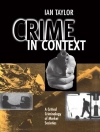This book approaches environmental, climate, and social justice comprehensively and interlinked. The contributors, predominantly from the Global South and have lived experiences, challenge the eurocentrism that dominates knowledge production and discourses on environmental and climate [in] justices. The collection of works balances theoretical, empirical, and practical aspects to address environmental and climate justice challenges through the lens of social justice.
This book gives voice to scholars of the Global South and uses an interdisciplinary approach to show the complexity of the problem and the opportunities for solutions, making this book a powerful resource in teaching, research, and advocacy efforts. The innovativeness of this approach stems from the use of narratives, scientific explanation, and thematic analysis to present the arguments in each chapter of this edited book. Overall, each chapter of this book acts as a powerful resource in teaching, research, and advocacy efforts.
This book fills a gap in the Global South production of environmental, climate, and social justice. It provides in-depth knowledge to the readers and raises their critical thinking about key elements/discussions of justice issues of environmental conflicts and climate change. The book is a useful read to a general audience interested in the topic of climate, environment, and development politics.
Inhaltsverzeichnis
The Social and Economic Implications of Environmental Justice for Elderly People – Blueprint for Social Work Interventions.- Social Work’s Role in Climate and Environmental Justice: A Child Participatory Approach.- Social Work Approach to Reduce the Vulnerability of Flood-affected People: Lessons Learned from Bangladesh.- Disaster (in) Justice in the Coastal Region of Bangladesh: An Inquiry into the Intervention of Local Actors.
Über den Autor
Dr. Devendraraj Madhanagopal (Ph.D.) is an Assistant Professor (II) in the School of Sustainability at XIM University (Odisha, India). He holds a Ph.D. in Sociology from the Department of Humanities and Social Sciences, Indian Institute of Technology Bombay (Mumbai, India). He is the recipient of several international travel grants/fellowships. His works appear in Environment, Development and Sustainability and Metropolitics journals. He has also made book contract agreements with reputed international publishers, and those books are in the process.
Dr. Christopher Todd Beer: His research interests include environmental sociology, social movements, world culture, and climate justice. His work examines support for climate justice among Kenyan environmental NGOs, the adopters of fossil fuel divestment in the US, the connections of world society, and the support for a shift away from capitalism among US climate change protestors. His work appears in Sociological Perspectives, The Sociological Quarterly, The Journal of the Global South, among others.
Dr. Bala Raju Nikku. is currently serving as an Assistant Professor of social work at Thompson Rivers University, Kamloops, Canada. Bala served as the founding director of the Nepal School of Social work from 2005 to 2011 and held international teaching positions in Malaysia, India, and Thailand until before Joining TRU in 2018. Dr. Nikku’s research focuses on race and racialization of politics and policy, human mobility, and displacement choices during and after disasters and pandemics.
Dr. André Pelser is currently Professor of Sociology and a Research Fellow at the University of the Free State in South Africa. His research expertise falls within the supplementary and cross-cutting field of population, environment and development and includes applied social and policy research, social ecology and the implications of demographic change for human development and the environment.












